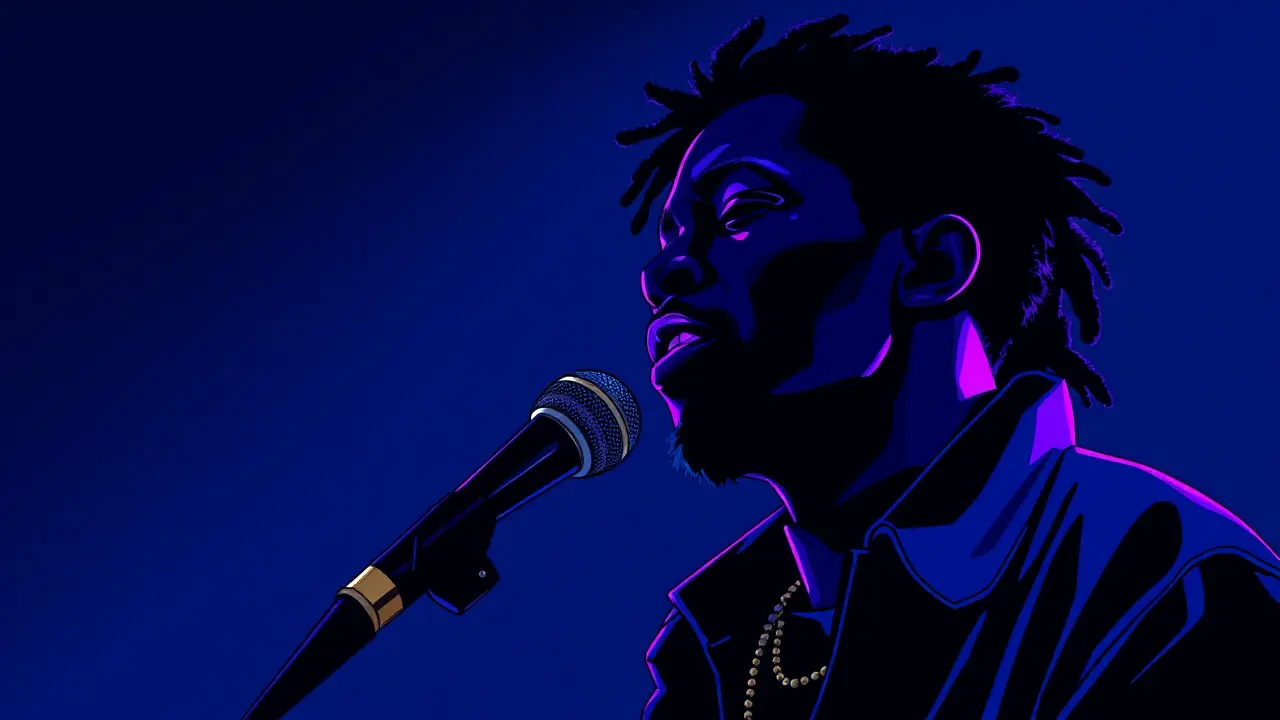Stars pay tribute to D'Angelo after his death.
The news hit the music world not like a breaking story, but like a fading chord, a slow, painful diminuendo for an artist whose work was anything but quiet. D'Angelo, the reclusive, revolutionary soul singer whose 2000 masterpiece 'Voodoo' didn't just bend the genre but rebuilt it from the ground up, has died after a battle with cancer, leaving a silence that feels louder than any stadium roar.When Beyoncé, a queen whose own career is a testament to artistic evolution, states that he 'transformed R&B forever,' it’s not a press release platitude; it’s a eulogy from a peer who understood the cost of such alchemy. To grasp D'Angelo’s impact, you have to go back to the late '90s, a time when R&B was polished to a high-gloss, synth-driven sheen on MTV.Then came this man from Richmond, Virginia, with a falsetto that could crack your heart and a vision that was raw, unvarnished, and deeply funky. He was part of the Soulquarian collective, a now-mythical group of artists including ?uestlove, J Dilla, and Erykah Badu, who holed up in New York's Electric Lady Studios, chasing a sound that was less about perfection and more about feeling—the crackle of the vinyl, the slip of the drum loop, the breathy, intimate confession.'Voodoo' was that manifesto. It wasn't an album you simply heard; it was an album you experienced.Tracks like 'Untitled (How Does It Feel),' accompanied by that iconic, minimalist music video, became an instant cultural touchstone, but the album's genius was in its layers—the jazz-inflected harmonies, the loose, almost improvised grooves that felt like a late-night jam session in a smoke-filled room. It was soul music deconstructed and then resurrected, a return to the primal, sexual, and spiritual roots of the form that drew a direct line back to Sly Stone, Prince, and Al Green.Yet, the very intensity of that spotlight seemed to scorch him. The pressure, the commodification of his image, and the personal struggles that followed led to a 14-year hiatus, a silence so profound that he became a ghost, a legend whispered about in record stores and on music forums.His return in 2014 with 'Black Messiah,' an album released in response to the Ferguson protests, was a thunderclap. It proved his genius wasn't a relic; it was a living, breathing force, more politically charged and musically complex than ever.His death, then, isn't just the loss of a great voice; it's the closing of a chapter on a certain kind of artistic purity. In an era of algorithmic playlists and 30-second TikTok clips, D'Angelo stood for the album as a complete, immersive statement, a body of work that demanded your full attention.He was a musician's musician, a producer's north star, and for listeners, a guide to a deeper emotional truth. The tributes pouring in from across the industry—from legends like Questlove, who called him his 'number one inspiration,' to a new generation of artists like H.E. R.and Anderson. Paak who have woven his influence into their own fabric—are not merely obligatory.They are acknowledgments of a debt, a recognition that the very landscape of modern soul, neo-soul, and R&B is built upon the foundation he laid. The needle has lifted, the record has stopped spinning, but the groove he carved into the very soul of music remains, indelible and profound.
Latest News
The charts are whispering what the true believers have felt in their bones for weeks—Dogecoin is carving out a bottom.
17 hours ago5 comments
The Institute for Fiscal Studies has thrown a stark warning onto Rachel Reeves's desk, urging the Chancellor to confront a potential £22 billion shortfall in
17 hours ago3 comments
Alright, let's break down this absolute heater of a performance from the Chicago Blackhawks, because if you missed this one, you missed a party.
18 hours ago5 comments
The ice was hot last night in the NHL, folks, serving up a slate of games that felt less like a regular season Tuesday and more like a playoff preview with a
18 hours ago3 comments
The XRP chart is painting a tantalizing picture for those with the stomach to withstand the relentless pressure from crypto's leviathans.
18 hours ago4 comments
It’s in the small shifts, the quiet recalibrations of a Thursday morning, where the most meaningful change often takes root.
18 hours ago4 comments
In a move that sent ripples of quiet confidence through the crypto ecosystem, blockchain intelligence firms tracked a monumental treasury allocation from
18 hours ago4 comments
In a move that would have drawn a nod of approval from historical figures like Churchill, who understood the delicate balance of power within democratic
18 hours ago2 comments
JA
Jamal Washington123k23 hours ago
man this one hits hard, his music was just on another level tbh, still learning about his influence from my own mentors
0
JA
Jamie Larson123k1 day ago
man this one hits different, his music was just on another level tbh
0
JA
Jamal Washington123k1 day ago
wow watching his journey from voodoo to black messiah was just incredible, it makes me so proud to see an artist grow and stay true to their vision like that 🥹❤️
0
JA
Jamie Larson123k1 day ago
man this one actually hurts what an absolute legend
0
JA
Jamie Larson123k1 day ago
man just finished his 14 year hiatus and now this smh the universe really has a dark sense of humor 😔
0
JA
Jamie Larson123k1 day ago
man 14 years of silence and he still drops a thunderclap like Black Messiah, what a legend
0
